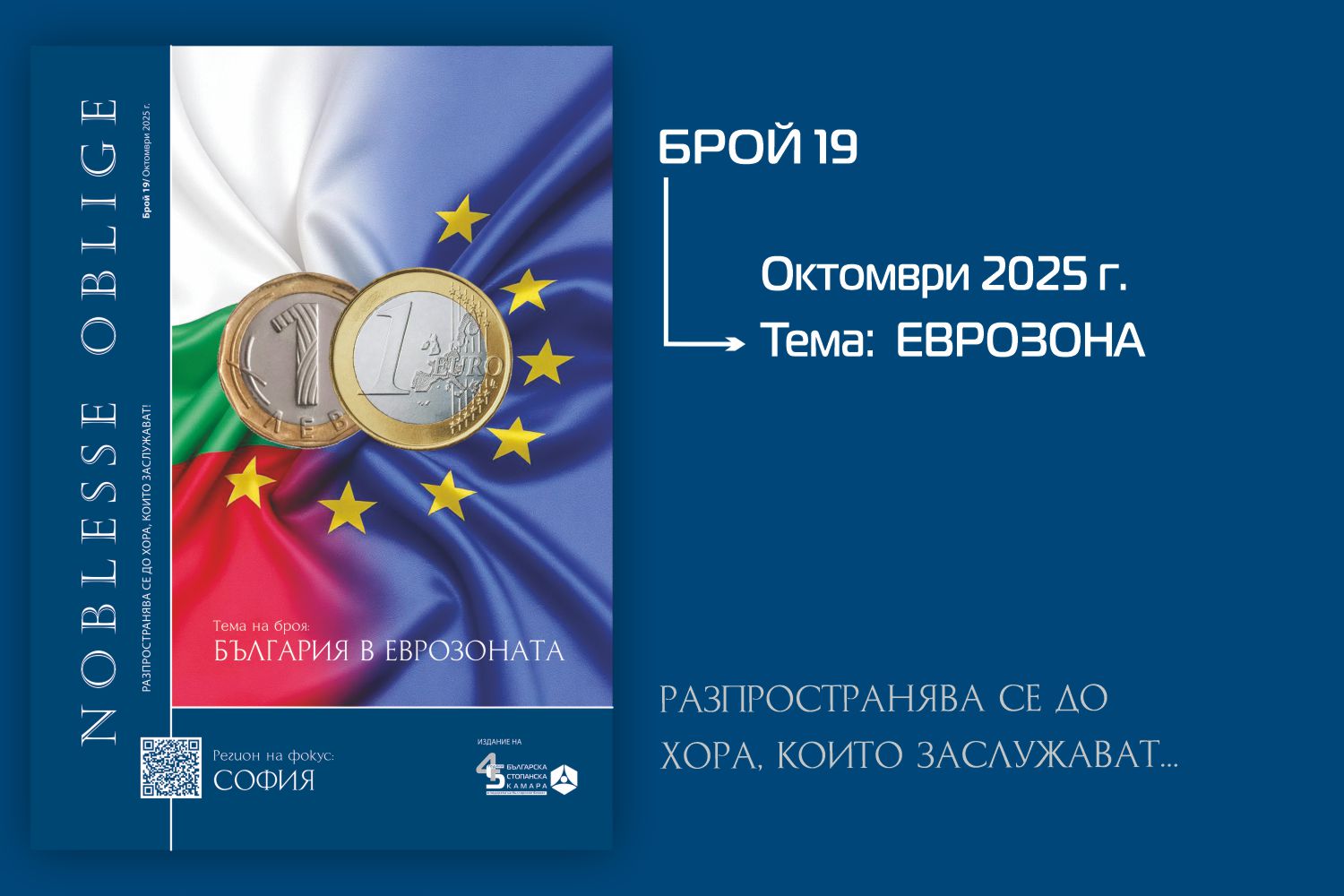Dear readers,
Bulgaria’s accession to the Eurozone has been one of the most discussed and closely followed topics in recent years by the media, institutions, businesses, and citizens. It concerns not only the country’s financial stability and economic development but also how we plan our expenses, savings, and investments.
In this issue of Noblesse Oblige, we examine the impact of the euro on Bulgaria’s economy and business environment. We sought opinions and analyses from key experts and institutions who have a direct perspective on the process and its consequences:
- Finance Minister Temenuzhka Petkova shares the state’s strategic perspective;
- BNB Governor Dimitar Radev comments on the banking sector’s preparation for the euro transition;
- Deputy Mayor of Sofia Georgi Klisurski examines the effects on the local economy and municipal budget;
- Representatives of the Commission for Consumer Protection (CCP) and the Chairman of the Commission for Protection of Competition (CPC), Rosen Karadimov, outline the frameworks for consumer protection and ensuring competition;
- Deputy Chairman of the Bulgarian Industrial Association Stanislav Popdonchev debunks common myths about the introduction of the euro and emphasizes the real effects on business and society;
- Financial analyst Lyubomir Datsov presents the three major challenges facing Bulgaria and Europe in the process of joining the Eurozone;
- Assoc. Prof. Dr. Manyu Moravenov, member of the Board of Directors and Executive Director of the Bulgarian Stock Exchange, shares his observations on the capital markets and their role in the accession process;
- Assoc. Prof. Dr. Yana Subeva, Chairperson of the Professional Ethics Committee at BSPR, shares her views on how the transition from the lev to the euro should be communicated;
- Business representatives and commercial banks representatives discuss the real effects on companies and entrepreneurship.
This issue aims to provide a comprehensive view of the challenges and opportunities associated with Bulgaria's introduction of the euro. Readers will find analyses, expert commentary, and practical observations that can help them make informed decisions in business and everyday life.
With this issue, we invite you to explore the various aspects of joining the Eurozone and assess its significance for the economy and society as a whole.
For those concerned about prices, coffee won’t become bitter, and receipts won't get longer just because they now also display euros.
And remember—when we talk about the euro, myths will always exist, but as it says on the cover of the most famous guide in the Galaxy: “Don’t panic!”
Enjoy your reading!
P.S. We thank all the experts, institutions, and business representatives who shared their knowledge and experience in preparing this issue. Your contribution is key to better understanding the process and its impact on Bulgaria.






